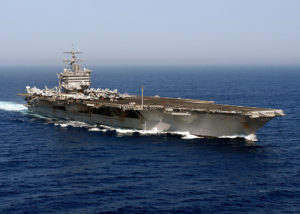Good morning, Whitewater.
Our weather in town will look more like fall: mostly sunny with a high of sixty-four. Sunrise is 6:48 AM and sunset 6:43 PM for 11h 55m 12s of daytime. The moon is a waning crescent with 19.6% of its visible disk illuminated.
Whitewater’s Urban Forestry Commission meets at 4:30 PM today, and their will be a School Board meeting at 7 PM.
The first general election presidential debate was held on September 26, 1960, between U.S. Senator John F. Kennedy, the Democratic nominee, and Vice President Richard Nixon, the Republican nominee, in Chicago at the studios of CBS‘s WBBM-TV. It was moderated by Howard K. Smith and included a panel composed of Sander Vanocur of NBC News, Charles Warren of Mutual News, and Stuart Novins of CBS. Historian J.N. Druckman observed “television primes its audience to rely more on their perceptions of candidate image (e.g., integrity). At the same time, television has also coincided with the world becoming more polarized and ideologically driven.”[2]
Three more debates were subsequently held between the candidates.:[3] On October 7 at the WRC-TV NBC studio in Washington, D.C., narrated by Frank McGee with a panel of four newsmen Paul Niven, CBS; Edward P. Morgan, ABC; Alvin Spivak, UPI;[4] Harold R. Levy, Newsday; October 13, with Nixon at the ABC studio in Los Angeles and Kennedy at the ABC studio in New York, narrated by Bill Shadel with a panel of four newsmen; and October 21 at the ABC studio in New York, narrated by Quincy Howe with a panel of four including Frank Singiser, John Edwards, Walter Cronkite, and John Chancellor. Nixon was considered a poor performer on television as he didn’t have the same telegenic looks in contrast to JFK. While he was considered the better debater, with more policy knowledge and good radio skills, Nixon wasn’t a snappy dresser, refused make up in the first debate, sweat profusely, and had a 5 O’Clock shadow.[5][6] Nixon later refused to do television debates in 1968 and 1972 as he felt his appearance had cost him against JFK in the tight-run race.
On this day in 1833, a treaty between several tribes and U.S. government cedes tribal land in eastern Wisconsin:
1833 – Indian Treaty Cedes to Government
On this date Indian tribes including the Ojibwe, Menominee, Potawatomi, Ho-Chunk, Ottawa and Sauk ceded land to the government, including areas around Milwaukee, especially to the south and east of the city. The ceded land included much of what is today John Michael Kohler and Terry Andrae State Parks. The Potawatomi continued to live along the Black River until the 1870s, despite the treaty. [Source:Wisconsin Department of Natural Resources]
JigZone‘s daily puzzle for Monday is of a Spanish coastline:


